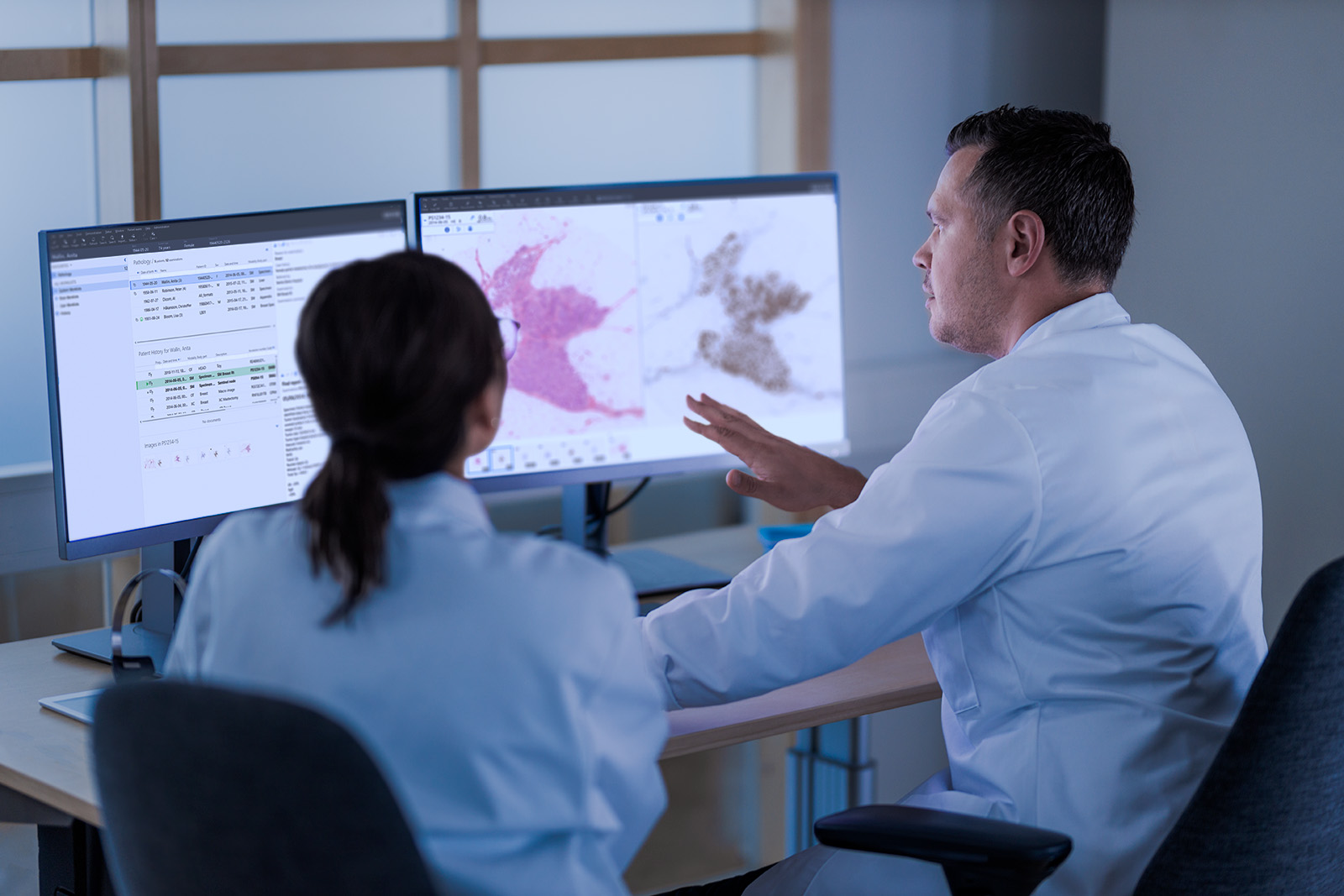Cancer patients will benefit from the potential for faster diagnosis and better access to specialist opinions, following the go-live of a digital pathology solution across five NHS sites in Devon and Cornwall
Technical and clinical deployment of the pathology module of Sectra’s enterprise imaging solution has now taken place at University Hospitals Plymouth NHS Trust and Royal Devon University Healthcare NHS Foundation Trust – Exeter, with more laboratories soon to follow in Royal Cornwall Hospitals NHS Trust, Royal Devon University Healthcare NHS Foundation Trust – North Devon, and Torbay and South Devon NHS Foundation Trust.
A period of clinical validation will take place over several months, before digital reporting becomes mainstream, with a move towards replacing glass slides and microscopes with high resolution digital images, and the modern tools to transform how in-demand pathologists work across the region.
The solution will progressively replace the need for pathologists to interact with glass slides, which have historically been packaged and transported when second opinions are needed. The new approach will allow pathologists to save precious time preparing for, and showing areas of concern, during multi-disciplinary team meetings.
It will also mean that pathologists can work more flexibly, being able to report or provide specialist opinions on pathology images from anywhere in the region without delay and being able to work from home
Using digital pathology is not only convenient – it is essential for expert review. Viewing very high-quality images, very rapidly, from any part of the region, will help specialists and generalists to maintain and raise each other’s standards. I expect that the quality of service will increase throughout the region, where reporting and review will be much more seamless.
Steve Blunden, Peninsula Pathology digital pathology lead, said: “We owe it to people who get cancer to enhance how we deliver our services and allow busy pathologists to collaborate to provide timely, efficient and accurate diagnosis. That it is what digital pathology is all about.
“For many cancer types, there is often a golden window from tissue diagnosis to starting surgery or chemotherapy to ensure efficacy of the treatment regimens. Digitising pathology will enhance our ability to deliver treatment to patients in a timely manner, helping to reduce recovery periods and improve outcomes for patients.
“Any patient in Devon and Cornwall should expect their biopsy to be reported by the most appropriate pathologist wherever they sit in the region, and to have their report delivered back into their host organisation system so they can be told if they have cancer and start any necessary treatment in a timely way.”
The new solution will not only benefit cancer patients, but everyone who has a specimen taken and waits for the result. Using digital pathology also creates the potential for diagnosis to be delivered sooner.
Known as the Peninsula Pathology Network, the region is the latest in the UK to deploy the Sectra imaging solution, which has been widely used in NHS hospitals for many years to analyse and report on diagnostic imaging.
Dr Tim Bracey, a consultant pathologist at Royal Cornwall Hospitals NHS Trust, and clinical digital lead for the Peninsula Pathology Network, said: “My colleagues are very eager to use digital pathology in their diagnostic work. Mature technology will help to change how we collaborate across the region and facilitate home working which will help to recruit and retain scarce professionals in the area.
“Using digital pathology is not only convenient – it is essential for expert review. Viewing very high-quality images, very rapidly, from any part of the region, will help specialists and generalists to maintain and raise each other’s standards. I expect that the quality of service will increase throughout the region, where reporting and review will be much more seamless.
“The potential for AI to reduce time-consuming, laborious work, will also give pathologists more time to do the interactive part of the specialty, to provide prognostic and predictive information to patients ourselves, as the experts, helping to convey the complexity of information. It also opens new possibilities around accurate grading of cancers, to predict morphological subtypes and appropriate drug therapies, and to triage material to be tested in a particular way, rather than testing a tumour for every mutation.”
Jane Rendall, UK and Ireland managing director for Sectra, said: “Devon and Cornwall is a strong example of how a region can continue to break down geographical barriers through digital pathology for the benefit of patients. Hospitals and laboratories across the network will become even closer through the ability to share images seamlessly. This offers the potential to redesign workforce structures and to enhance access for patients.”
August 2025
Suggested reading

